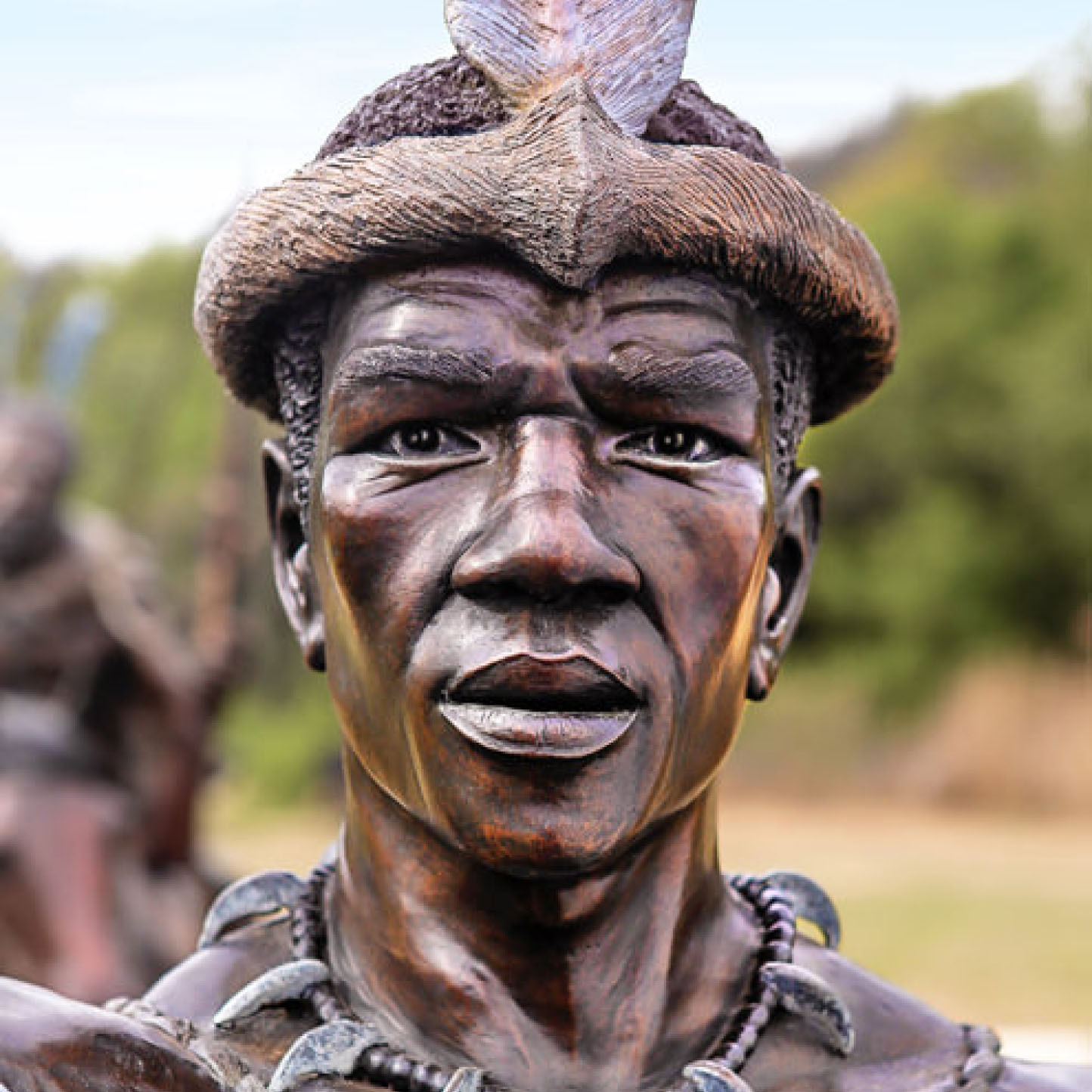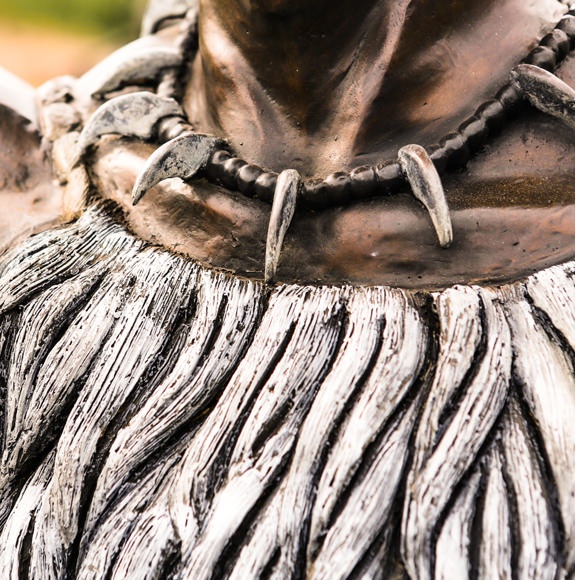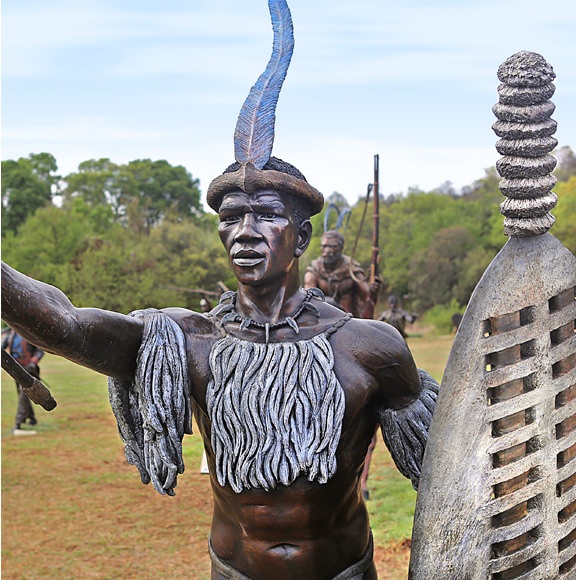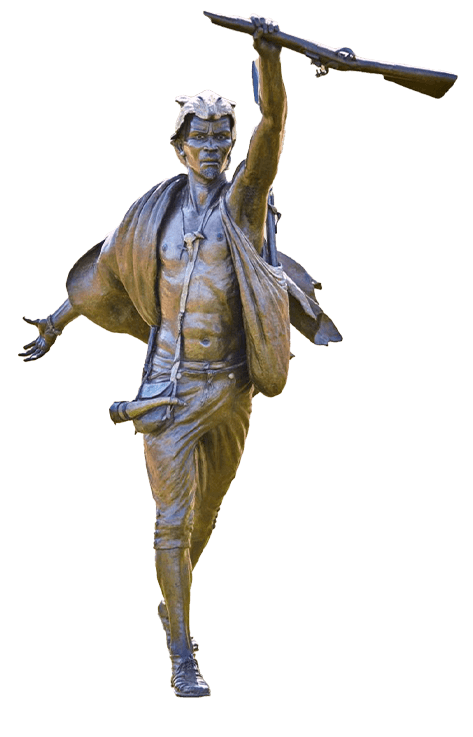


"He desired to know from us if ever we had seen such order in any other state, assured us that he was the greatest king in existence, that his people were as numerous as the stars, and that his cattle were innumerable."
Shaka's interpreter, Hlambamanzi, to Henry Francis Fynn during his first encounter with the King, from The Diary of Henry Francis Fynn, first published 1950 Fynn was an English traveler and trader. His diary covers the period from 1824 to 1836 and provides a contemporary account of King Shaka and the nation and the Zulu kingdom that he founded.
Shaka Ka Senzangakhona
1780S - 1828
Founder of the Zulu Kingdom
Shaka was born out of wedlock to Zulu chief Senzangakhona kaJama and Nandi, daughter of a chief of the eLangeni clan.
Nandi and Shaka were apparently exiled when he was about 6 years old and his childhood was spent wandering with his mother between homesteads, until he was befriended by Dingiswayo, ruler of the powerful Mthethwa clan. Dingiswayo launched Shaka as a military leader and helped install him as the Zulu chief after the death of Senzangakhona in 1816. After Dingiswayo's death he assumed power over the Mthethwa as well as numerous other clans.
Shaka rose to power at a time when new, enlarged kingdoms were being established in southern Africa and in his 12-year reign he created a powerful kingdom around a common Zulu identity and the concept of expansion by conquest.
King Shaka's military innovations are the stuff of legend. He structured the amabutho or age regiments of young men who were kept on continuous military service, barracked at a series of royal homesteads. He perfected the tactics of close formation fighting using short stabbing spears from behind a wall of body-length cowhide shields. The encircling formation, the horns of the bull, bringing large numbers of men swiftly and efficiently into combat around the enemy, was still used by King Cetshwayo with devastating effect against the British at lsandlwana in 1879.
King Shaka's mother died in 1827. His grief was extreme and he ordered the entire nation into mourning. There are accounts of massacres and seemingly irrational decrees, such as against all sexual intercourse, which led to a weakening of his power. He was assassinated in 1828 in KwaDukuza in present-day KwaZulu-Natal by his two half-brothers, one of whom, Dingane, would succeed him as king.
The kingdom Shaka had founded was eventually defeated and broken up by the invading British imperialist forces in 1879.
